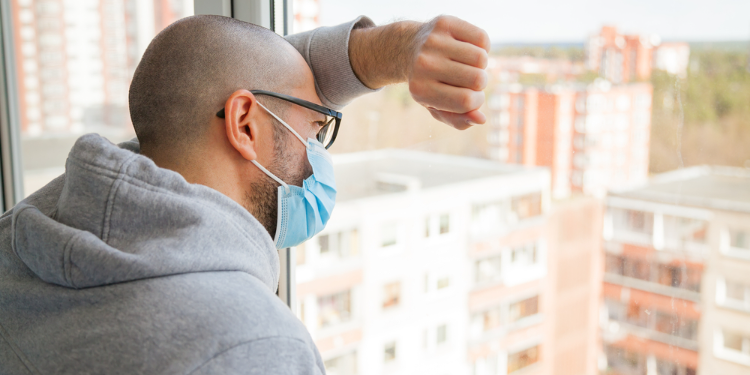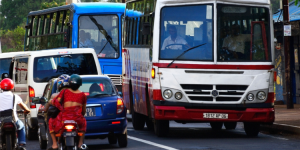
The coronavirus pandemic has impacted expats lives around the globe, and it still has implications on the plans of people who are planning to move abroad. If travel conditions and visa processes were not very fun, it can currently cause a lot of distress and even make some give up on their plans. Still, there are things to consider before moving abroad during the pandemic.
There are several International Travel Requirements within the Covid-19 pandemic as everyone should wear a mask over nose and mouth at all times, for example, but there are also restrictions to enter countries. Expats should be aware of updates that may vary every day since the pandemic has ups and downs, yet it is not over. Most countries will ask for a PCR Covid-19 test, others additionally will require travellers to fill out forms, and some might request proof of at least double vaccination against the virus.
Expats must be aware that in some places, it has to be one of the vaccines accepted by the country's Health System. The Centers for Disease Control and Prevention of the US (CDC) advises everyone to not travel if they feel sick or tested positive for COVID-19. Most countries will not allow that anyway; however, within Europe and only among them, some restrictions have eased up, such as Switzerland, France, Spain, and Portugal. On the other hand, there are several things to consider to avoid quarantines for expats coming from or going overseas.
Travel recommendations
According to CDC, first, everyone should properly wear a well-fitting mask when around others for the entire travel duration to prevent contamination. Still, people who tested positive can travel just a full 10 days after their symptoms started or the date their positive test was taken if they had no symptoms. It is highly advised to take travel insurance during the Covid-19 pandemic to avoid losing flights if the expat turns positive for the virus. Most airline companies won't give a refund or change the dates, except if the expat chooses a more expensive flying option that covers that. CDC advises expats to stay in quarantine for at least ten days in their home countries before travelling to avoid exposing themselves to the virus and avoid losing their trip.
The same happens if they are waiting for the results of a COVID-19 test, as some countries are doing an extra Covid-19 test when expats arrive from overseas. In this case, expatriates won't be deported, but they will have to do a quarantine in the new country, having to go through specific requirements such as paying for a hotel room for all the quarantine period.
What if the Covid-19 test turns out positive when the 10-14 days quarantine is over? Travel and health insurance will be key to avoiding more significant problems on that. But unfortunately, moving abroad nowadays is a synonym of instability. Therefore, expats have to be prepared for a series of additional costs but to avoid financial disasters. They have to check entry restrictions carefully for travellers from overseas on their host country government's website. That is the safest and most updated place to search for information at these times. Moreover, it might be a great idea to follow the Twitter page of the country's Health Ministry to follow the changes thoroughly.
Europe and UK
Expats going to the Netherlands have to do a self-quarantine for ten days if they stayed in a very high-risk area. If expats get tested on day 5 of quarantine, they might be able to shorten the ten days period. High-risk areas change per country, so expats should be aware of that before moving abroad. In Germany, if expats spent time in a high-risk area within the last ten days before their entry in the country, they must, as a rule, make their way directly to their home – or another place of accommodation at their destination – upon arrival, and remain isolated there (home quarantine). Hostels and shared rooms don't count as quarantine. If expatriates are entering Germany following a stay in a high-risk area, they will need to self-isolate for ten days. If they spent time in an area of variants of concern prior to entry, the self-isolation period is 14 days. Home quarantine automatically ends if the area concerned is no longer on this list.
In the UK, if expats are not fully vaccinated, they must quarantine for 10 full days. According to the British government entry rules, this period is necessary because it can take up to 10 days for COVID-19 symptoms to appear. Expats must quarantine at the address they provided on the passenger locator form. This can include staying in their own homes, with friends or family, or in a standard hotel or other temporary accommodation.
Check local requirements, restrictions, and situations
Some state, local and territorial governments have different requirements for their citizens, such as requiring people to wear masks or show covid-tests or double jab vaccine before entering social places, the “vaccination pass” in France and in Barcelona, for instance. Expats should save themselves unpleasant surprises and delays by checking for restrictions at their destination and anywhere they might stop along the way there. It is also important to keep in mind that restrictions can change rapidly depending on local conditions.
This research phase is crucial for expats students and workers for issuing their visas. If some expats liked to leave their moving abroad plans for the last moment, now they just can't. Embassies and consulates have been working slower than usual, and in some countries, they have suspended their services without further notice. So, in the process of applying for a job or for a university abroad, it is indispensable to check deadlines and to get back to the responsible government office locally to check if it is working normally and if they can answer that demand.



















